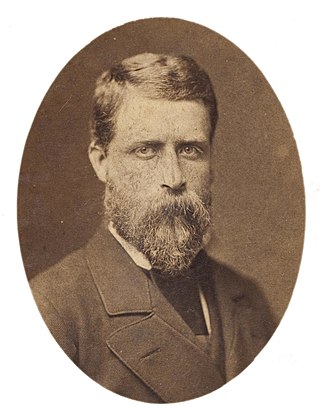
David Gaunson was an Australian politician and criminal solicitor who conducted the defence of the infamous Australian bushranger, Ned Kelly in the pre-trial stages.

Sir James McCulloch, was a British colonial politician and statesman who served as the fifth premier of Victoria over four non-consecutive terms from 1863 to 1868, 1868 to 1869, 1870 to 1871 and 1875 to 1877. He is the third longest-serving premier in Victorian history.
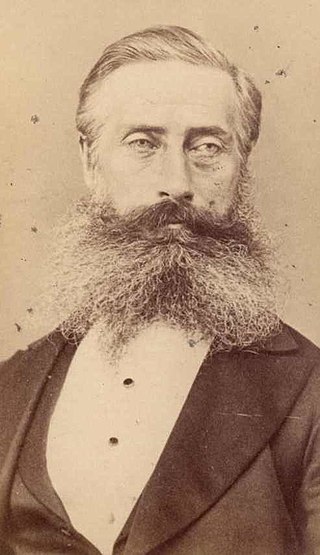
Sir Graham Berry,, was an Australian colonial politician and the 11th Premier of Victoria. He was one of the most radical and colourful figures in the politics of colonial Victoria, and made the most determined efforts to break the power of the Victorian Legislative Council, the stronghold of the landowning class.
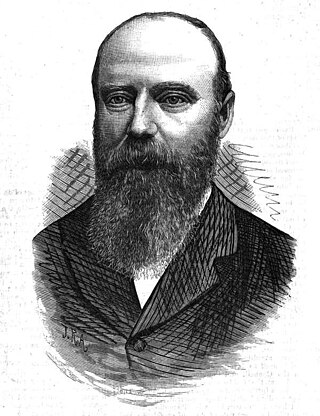
Sir Bryan O'Loghlen, 3rd Baronet, Australian colonial politician, was the 13th Premier of Victoria.

James Macpherson Grant was an Australian solicitor who defended the Eureka Stockade rebels and a politician who was a member of the Victorian Legislative Assembly and the Victorian Legislative Council.
Charles Edwin Jones was an Australian politician, member of the Victorian Legislative Assembly 1864 to 1871 and 1886 to 1889.
Black Wednesday was a political crisis in Melbourne, Victoria, Australia on 9 January 1878 when the Victorian Government, headed by the radical premier Graham Berry, dismissed around 300 public servants, including department heads, judges and senior officials, after the Legislative Council had failed to pass a government supply bill on the grounds that it included an expenditure item to extend the payment of members of parliament. Further sackings on 24 January brought the total number of people dismissed to nearly 400.

Robert Murray Smith, usually known as Murray Smith, CMG MA, was a member of the Victorian Legislative Assembly and Agent-General for Victoria (Australia).
Robert Byrne was a politician in colonial Victoria (Australia) and Treasurer of Victoria September 1869 to 21 January 1870.
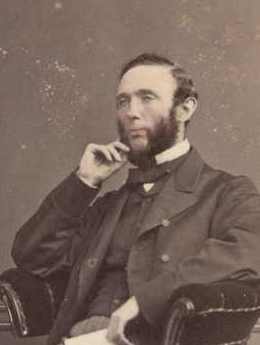
The February 1880 Victorian colonial election was held on 28 February 1880 to elect the 10th Parliament of Victoria. All 86 seats in 55 electorates in the Legislative Assembly were up for election, though two seats were uncontested.

The July 1880 Victorian colonial election was held on 14 July 1880 to elect the 11th Parliament of Victoria. All 86 seats in 55 electorates in the Legislative Assembly were up for election, though eight seats were uncontested.

The 1883 Victorian colonial election was held on 22 February 1883 to elect the 12th Parliament of Victoria. All 86 seats in 55 electorates in the Legislative Assembly were up for election, though twelve seats were uncontested.

The 1874 Victorian colonial election was held from 25 March to 22 April 1874 to elect the 8th Parliament of Victoria. All 78 seats in 49 electorates in the Legislative Assembly were up for election, though eleven seats were uncontested.

The 1871 Victorian colonial election was held from 14 February to 16 March 1871 to elect the 7th Parliament of Victoria. All 78 seats in 49 electorates in the Legislative Assembly were up for election, though six seats were uncontested.

The 1868 Victorian colonial election was held from 21 January to 20 February 1868 to elect the 6th Parliament of Victoria. All 78 seats in 49 electorates in the Legislative Assembly were up for election, though seven seats were uncontested.

The 1866 Victorian colonial election was held from 30 December 1865 to 29 January 1866 to elect the 5th Parliament of Victoria. All 78 seats in 49 electorates in the Legislative Assembly were up for election, though ten seats were uncontested.

The 1864 Victorian colonial election was held from 5 October to 3 November 1864 to elect the 4th Parliament of Victoria. All 78 seats in 49 electorates in the Legislative Assembly were up for election, though sixteen seats were uncontested.

The 1861 Victorian colonial election was held from 2−19 August 1861 to elect the 3rd Parliament of Victoria. All 78 seats in 49 electorates in the Legislative Assembly were up for election, though four seats were uncontested.
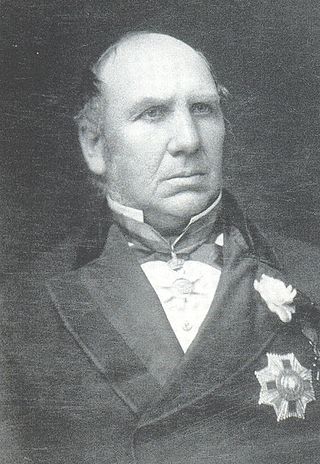
The 1859 Victorian colonial election was held from 26 August to 26 September 1859 to elect the 2nd Parliament of Victoria. All 78 seats in 49 electorates in the Legislative Assembly were up for election, though eight seats were uncontested. This election was the first held in Victoria after the electoral rolls were compiled according to the principle of manhood suffrage.

The 1856 Victorian colonial election was held from 23 September to 24 October 1856 to elect the first Parliament of Victoria. All 60 seats in 37 electorates in the Legislative Assembly were up for election, though eight seats were uncontested. The eligibility to vote at the 1856 Victorian election was subject to a property qualification. The voting was carried out by secret ballot.













